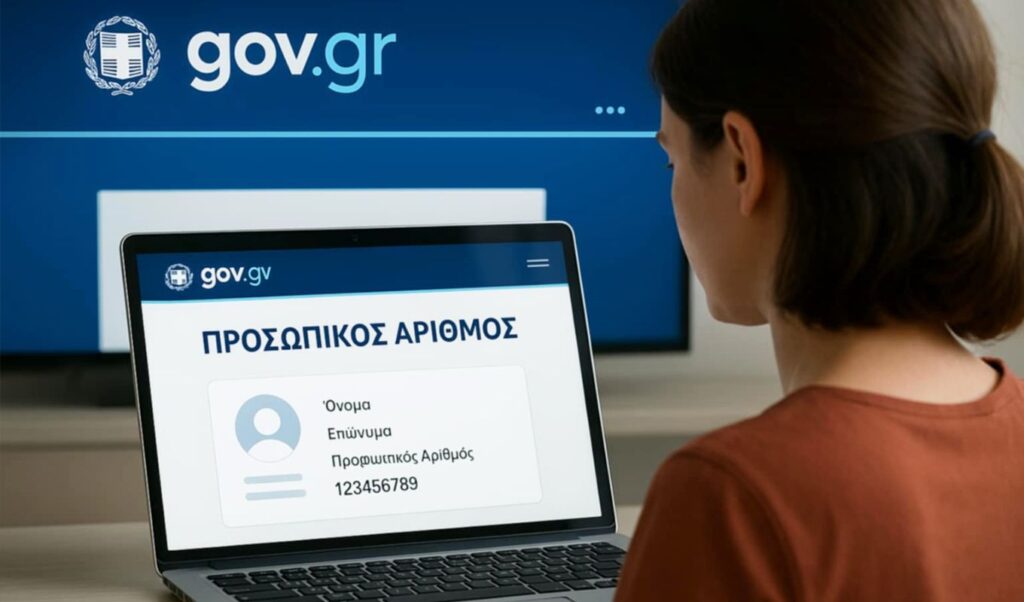The digital revolution in public services introduces the personal number as the new identification tool that will simplify citizens’ lives. This innovative reform aims to eliminate bureaucracy and improve service delivery, while simultaneously solving chronic problems in the interconnection of state registries that have been troubling citizens for years.
Read: Personal Number: Last day to register on myInfo platform – What happens to those who don’t do it
What is the deadline for the personal number
Obtaining the personal number is mandatory by November 5. The process of acquiring the personal number is extremely easy and fast. Through the digital platform myinfo.gov.gr, every tax number holder can issue their personal number in just a few minutes, using their TaxisNet access codes. The personal number consists of three alphanumeric elements chosen by the citizen themselves, followed by an automatic code generated by the system and the existing Tax Registry Number. This unique code will gradually replace all other numbers such as social security numbers, tax numbers, and ID numbers.
The myInfo application provides significant conveniences to users. Citizens have the ability to verify their registration municipality, utilizing digital documents issued instantly through gov.gr, such as family status certificates. Additionally, parents are automatically notified about tax number assignment to their minor children through AADE digital applications. Through pa.gov.gr, citizens can confirm their details and issue personal numbers for protected minor family members who have tax numbers. It’s important to note that issuing a new ID now requires prior issuance of a personal number, which will be displayed on the back of the document.
What will happen if you don’t get the personal number
Citizens who don’t proceed with personal number activation risk facing serious problems in daily transactions. The consequences include difficulties in submitting tax returns, problems with insurance contribution payments, and obstacles in electronic transactions with the public sector.
Frequently asked questions about the personal number
Citizens will only need to memorize one number in the future. The personal number will function as the “digital key” for all public services and gradually for private sector services. The personal number remains permanent, unique, and unchangeable throughout the citizen’s lifetime, regardless of changes in identity, place of residence, or other registries. Its assignment is done through the myInfo application on gov.gr, where citizens actively participate in shaping their number and can confirm or correct their personal information.
The personal number is assigned to all natural persons who have a tax number or social security number, whether they are Greeks or foreigners. For issuance, taxisnet codes and a registered mobile number in the National Communication Registry are required. The personal number will appear on new IDs and in the digital identity in the gov.gr wallet, serving as the citizen’s unique identifier in the digital world. Immediate ID change is not necessary, as the number can be issued through gov.gr, but the transition is necessary in the medium term based on European directive.
Benefits of digital reform
This innovative change serves multiple purposes: it facilitates interoperability of state registries, significantly reduces citizen inconvenience, and contributes to correcting errors that exist in official registries such as the Citizens’ Registry, AADE, social security, police, and other agencies.




